Complete Solutions to Solved Examples of chapter QUADRILATERALS of Class 9 book with complete answers and questions
| Class 9 | MATHS |
| Chapter | QUADRILATERALS |
| NAGEEN PRAKASHAN | Solved Examples |
| Number Of Questions | 29 |
| Academic Year | 2023-24 |
The angles of a quadrilateral are in the ratio `3:4:5:6.` Find all its angles.
View SolutionThree angles of a quadrilateral are in the ratio `4:6:3.` If the fourth angle is `100^(@)` find the three angles of the quadrilateral.
View SolutionThe angles of a quadrilateral are in the ratio `4:3:6:5.` Show that it is a trapezium.
View SolutionThe side BA and DC of a quadrilateral ABCD are produced to E and F respectively. If `angleBCF=a^(0),angleABC=x^(@), angleADC=y^(@)and angleDAE=b^(@),`
`"then find relation between a,b,x and y"`
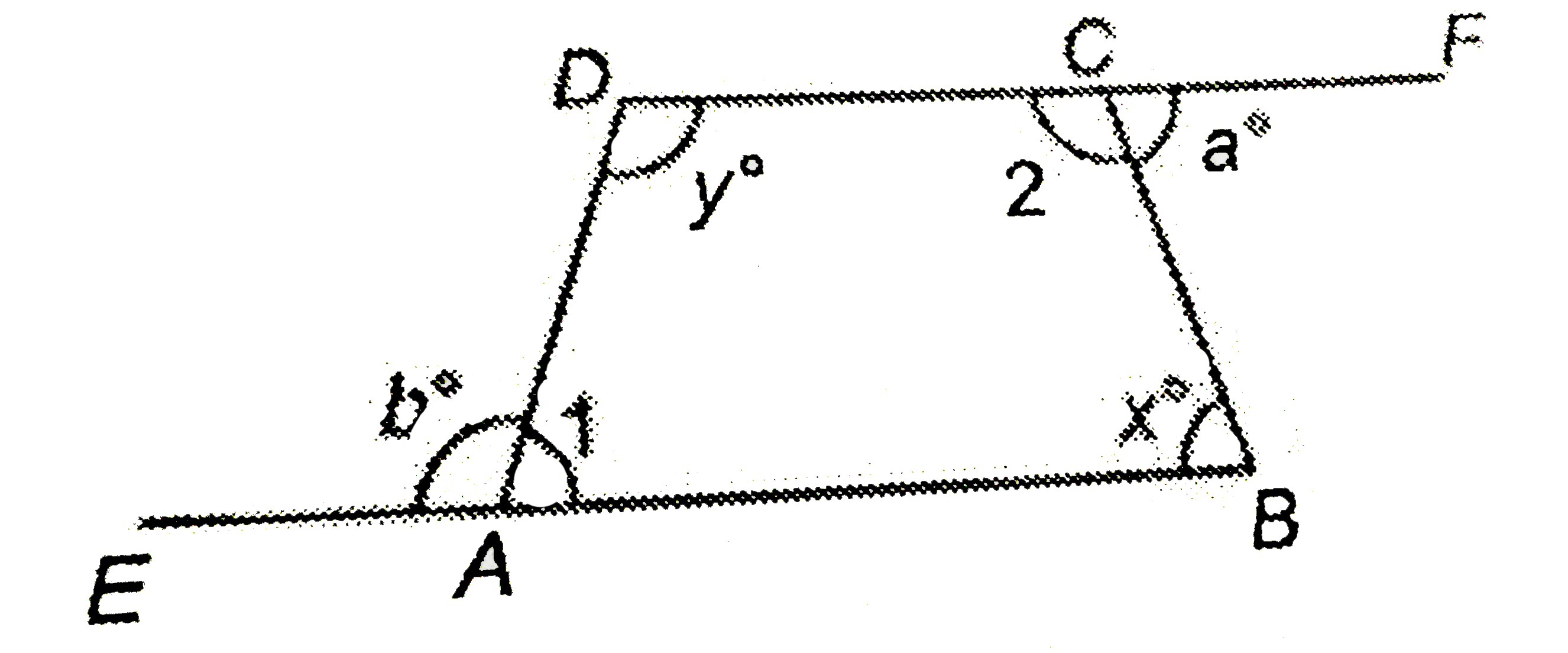
View SolutionIn a rectangle ABCD, diagonals AC and BD intersect at O. If `angleOAB=35^(@),` find :
`(a)angleABC(b)angleABO(c)angleCO (d)angle BOC)`
View SolutionIn the given figure, `ABCD` is a square. Find `x`.
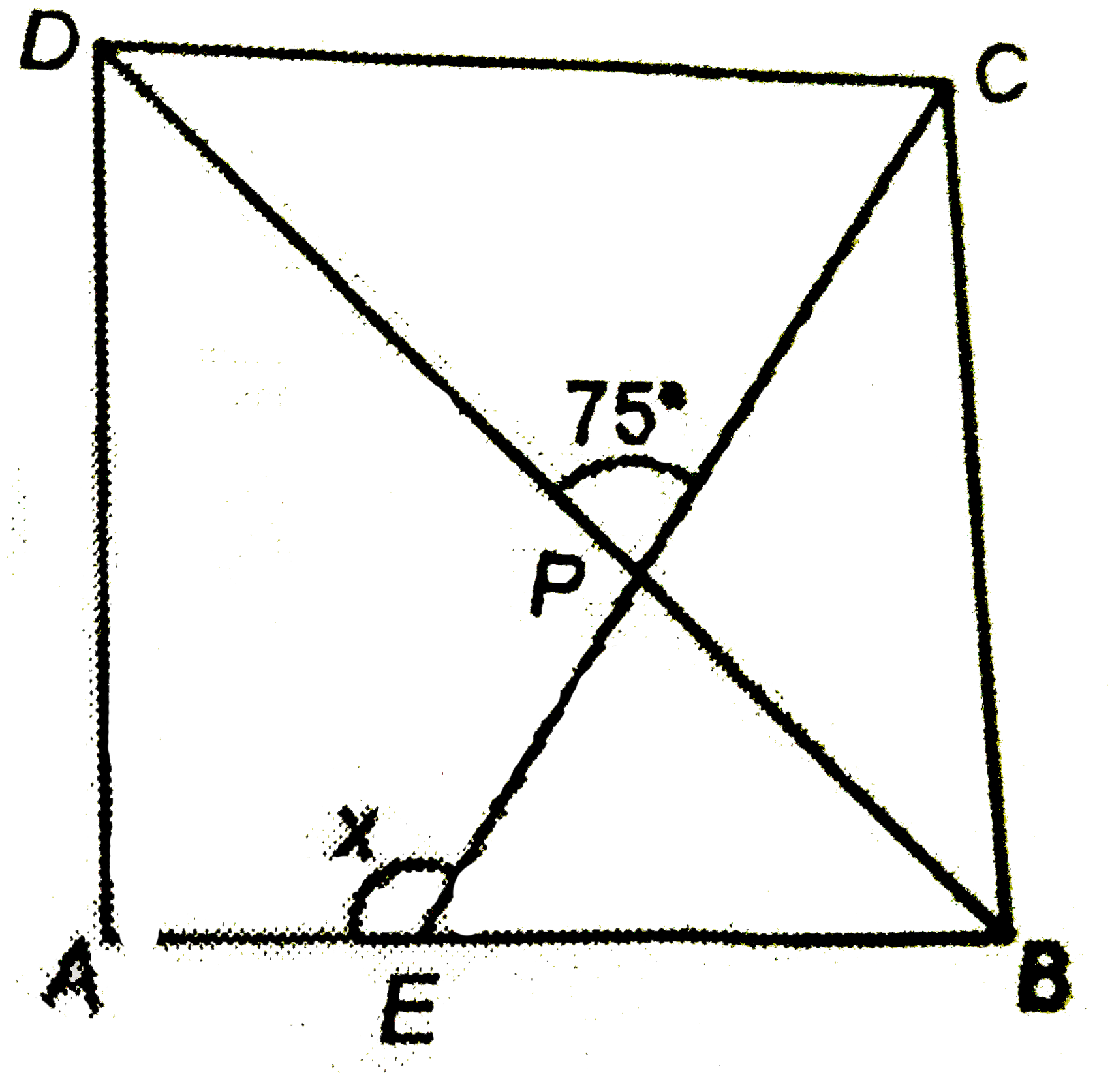
View SolutionIn a quadrilateral ABCD, AO and BO are the bisectors of `angleA and angleB` respectively. Prove that `angleAOB=1/2(angleC+angleD).`
View SolutionIn a parallelogram ABCD, the bisectors of `angleA and angleB` intersect each other at point P. Prove that `angleAPB=90^(@).`
View SolutionFind the remaining angle of a parallelogram if one of its angles is `110^(@).`
View SolutionPQRS is a parallclogram such that PQ is parallel to SR and SP is parallel to RQ. The length of side PQ is 20 cm. M is point between P and Q such that the length of PM is 3 cm. N is a points between points S and R. Find the length of SN such that segment MN divides the parallelogram in two regions with equal areas.
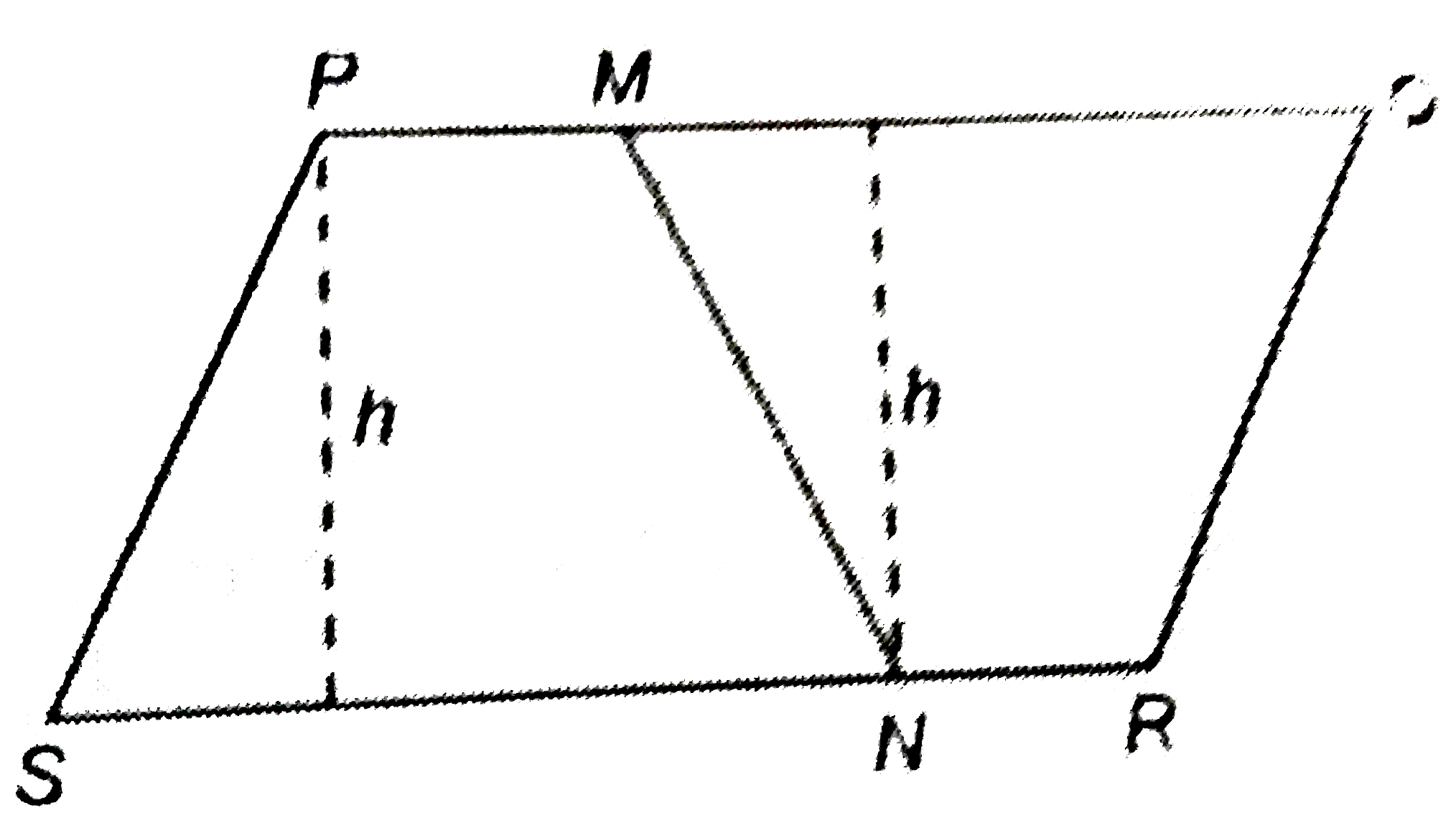
View SolutionIn the given figure, ABCD is a parallelogram in which AN and CP are perpendiculars on diagonal BD. Prove that :
(i) `DeltaADN =DeltaCBP`
`(ii) AN=CP`
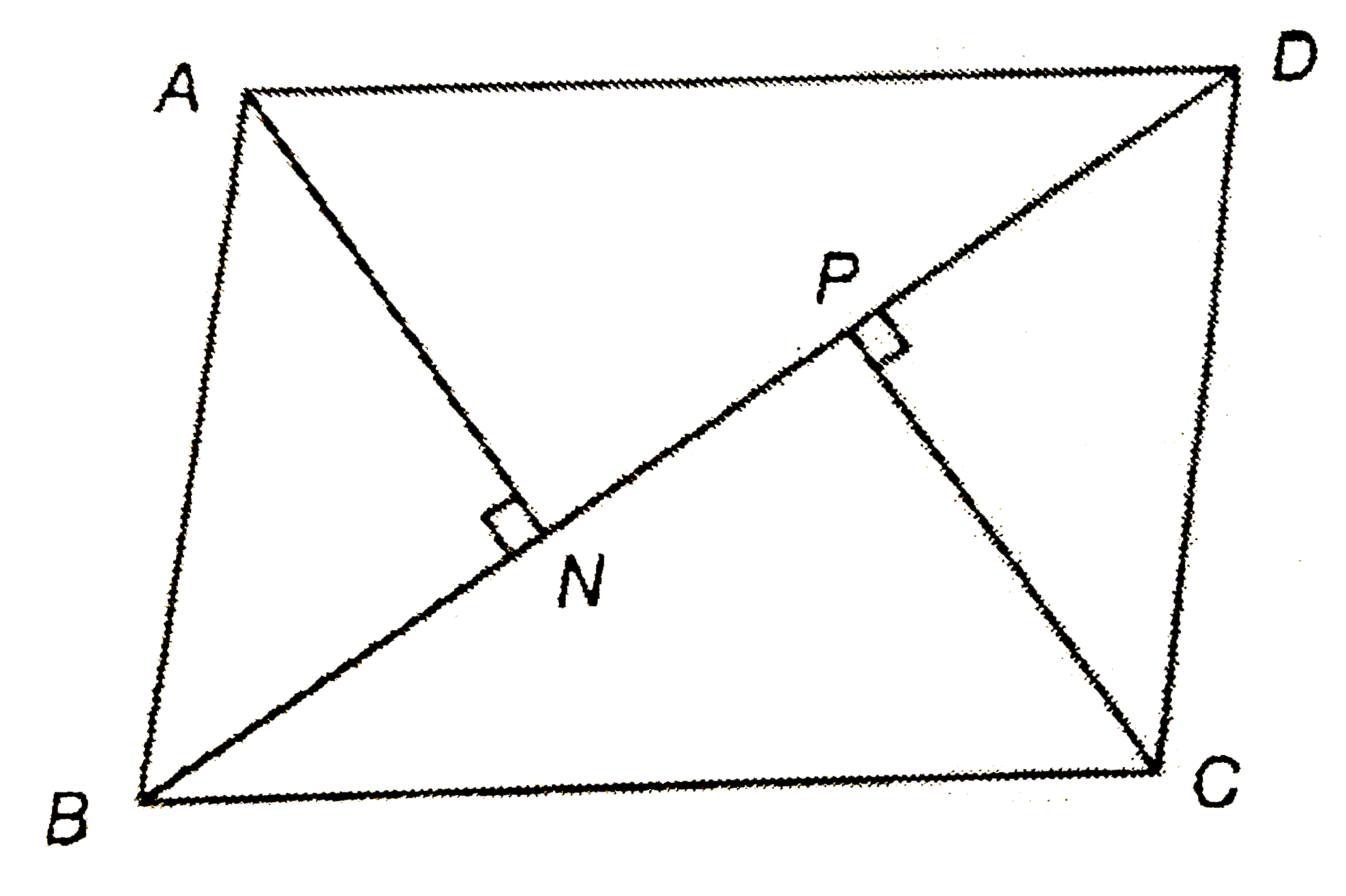
View SolutionIn quadrilateral ABCD, AB `"||"`CD and AD= BC, prove that `angleA=angleB.`
View SolutionIn the adjoining figure, `squareABCD and squareAPQR` are two parallelograms. Prove that :
`angleC=angleQand angleB=angleR`
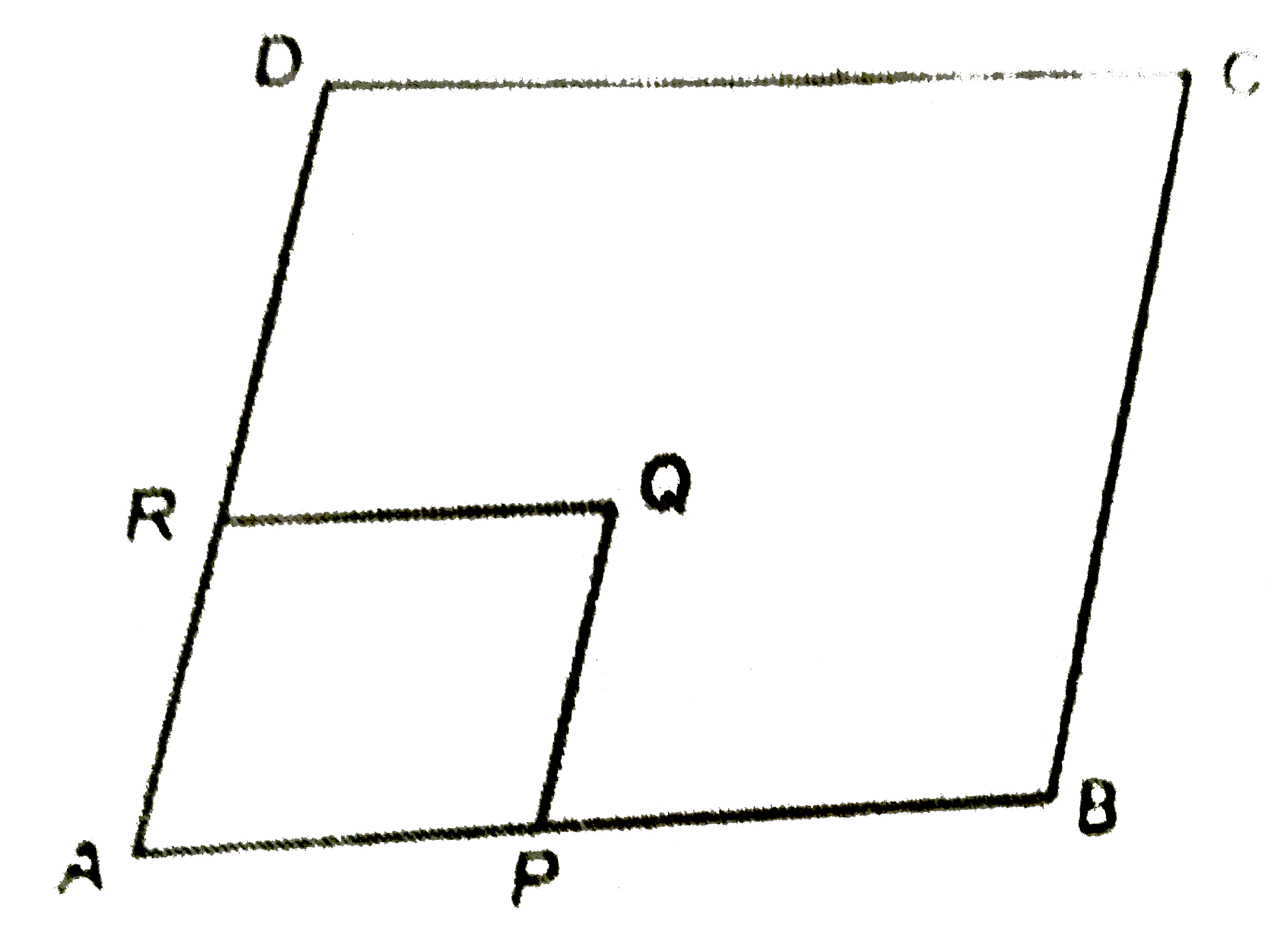
View SolutionIn the given figure, `square`ABCD is a parallelogram. If DM `bot` AC and BN `bot` AC, then show that `squareBNDM` is a parallelogram.
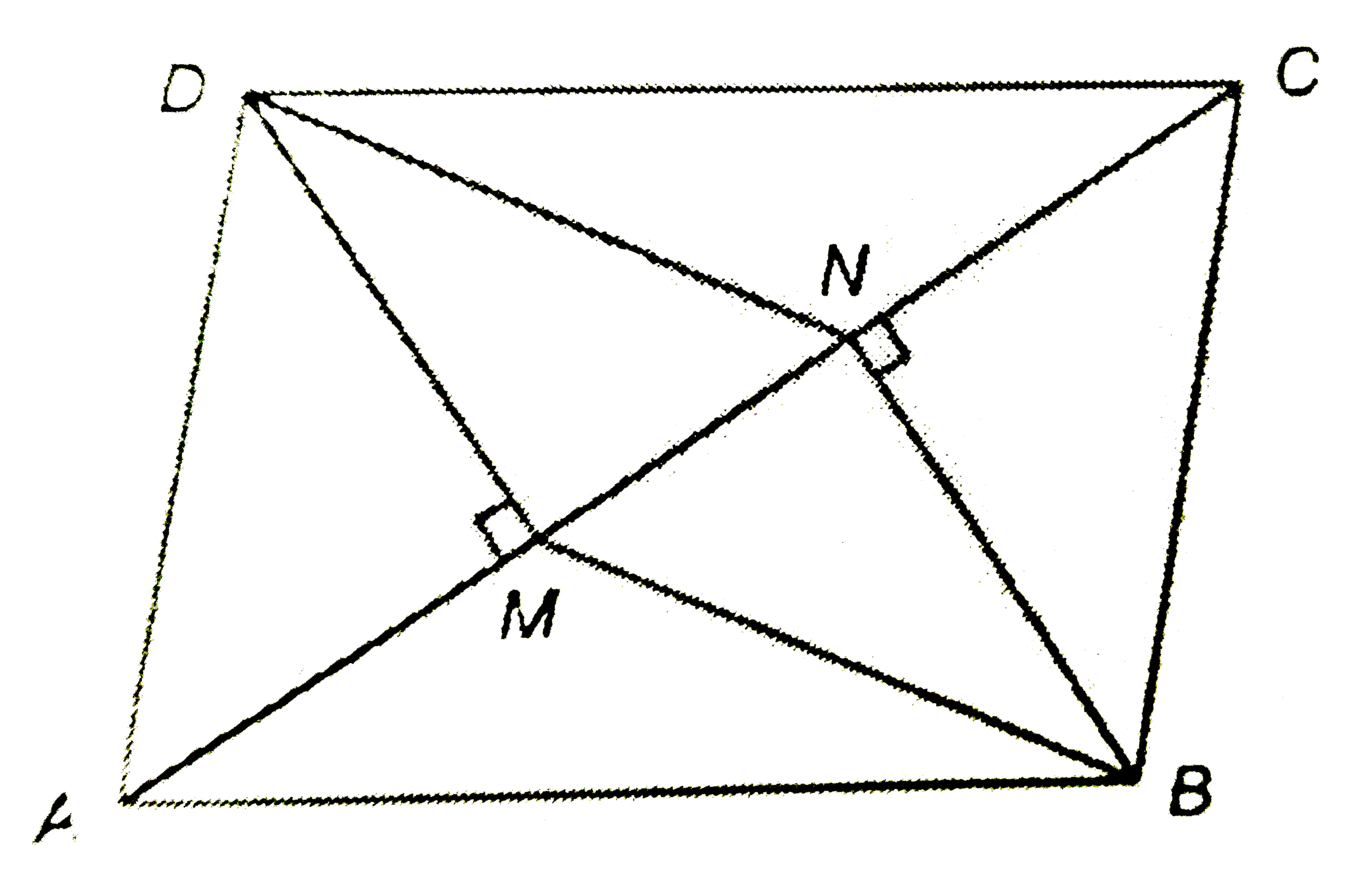
View SolutionThe median AD of `DeltaABC` is prodiced upto X such that AD= DX. Prove that `squareABXC` is a parallelogram.
View SolutionABCD is a parallelogram. Tow points P and Q are taken on sides AD and BC respectively such that AP `1/3ADand CQ=1/3BC.` Prove that `squareAQCP` is a parallelogram.
View SolutionA cyclic polygon has n sides such that each of its interior angle measures `114^(@).` What is the measure of he angle subtended by each of its sides at the geometrical centre of the polygon?
View SolutionThe number of diagonals of a regular polygon is `27`. Then, find the measure of each of the interior angles of the polygon.
View SolutionP is the mid-point of side AB of parallelogram ABCD. A line drawn from B parallel to PD meets CD at Q and AD produce at R. Prove that :
(i) AR = 2BC (ii) BR= 2BQ
View SolutionE and F are the mid-points of the sides AB and CD of a parallelogram ABCD. Prove that the line segment AF and CE trisects BD in three equal parts.
View SolutionIn the adjoining figure D, E and F are the mid-points of the sides BC, CA and AB of the equilateral `DeltaABC.` Prove that `DeltaDEF` is also an equilateral triangle.
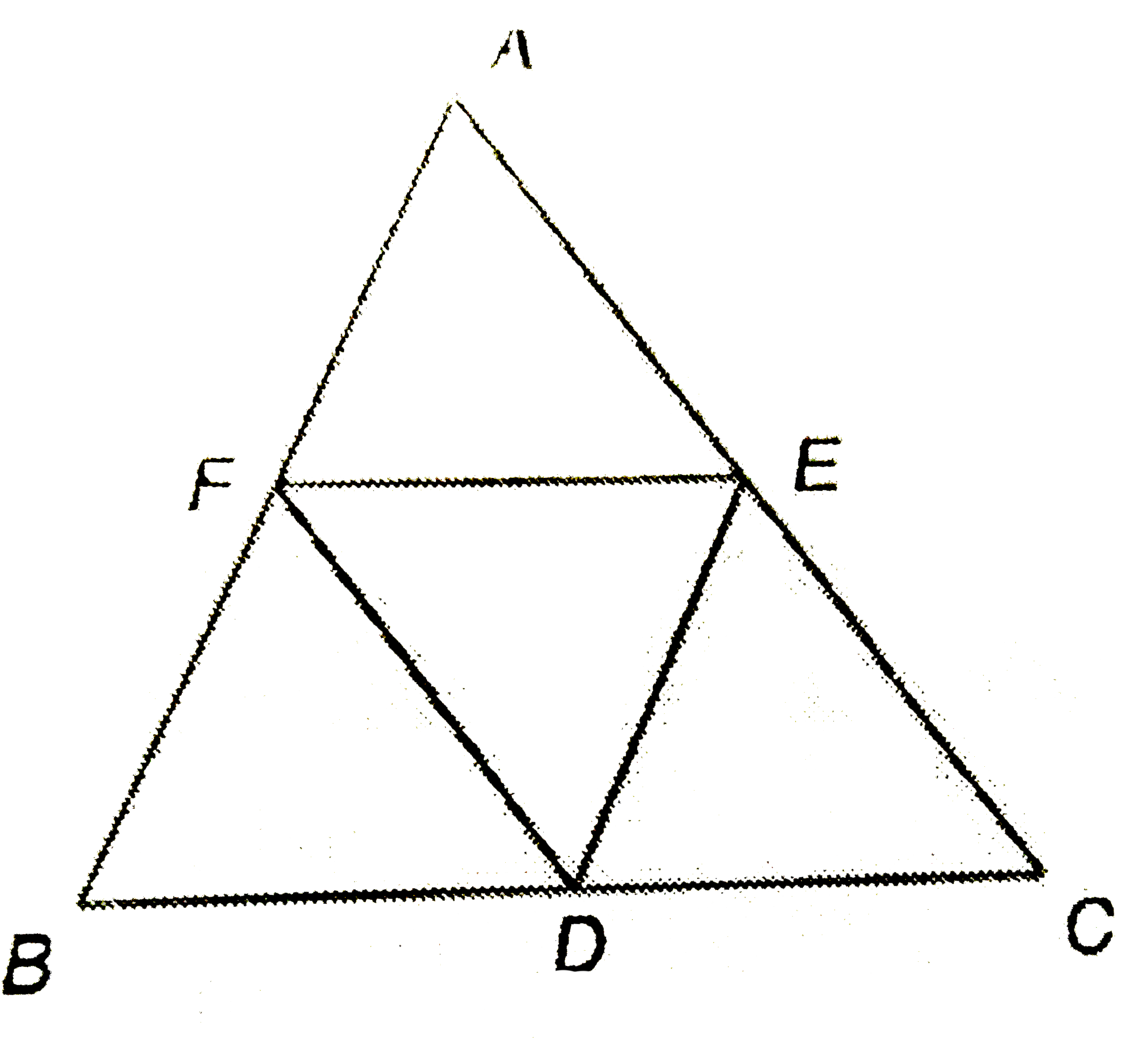
View SolutionIn the given figure. ABCD is a trapezium in which AB|| DC and E is the mid-point of AD, if EF||DC, then show that `EF=(1)/(2)(AB+DC)`.
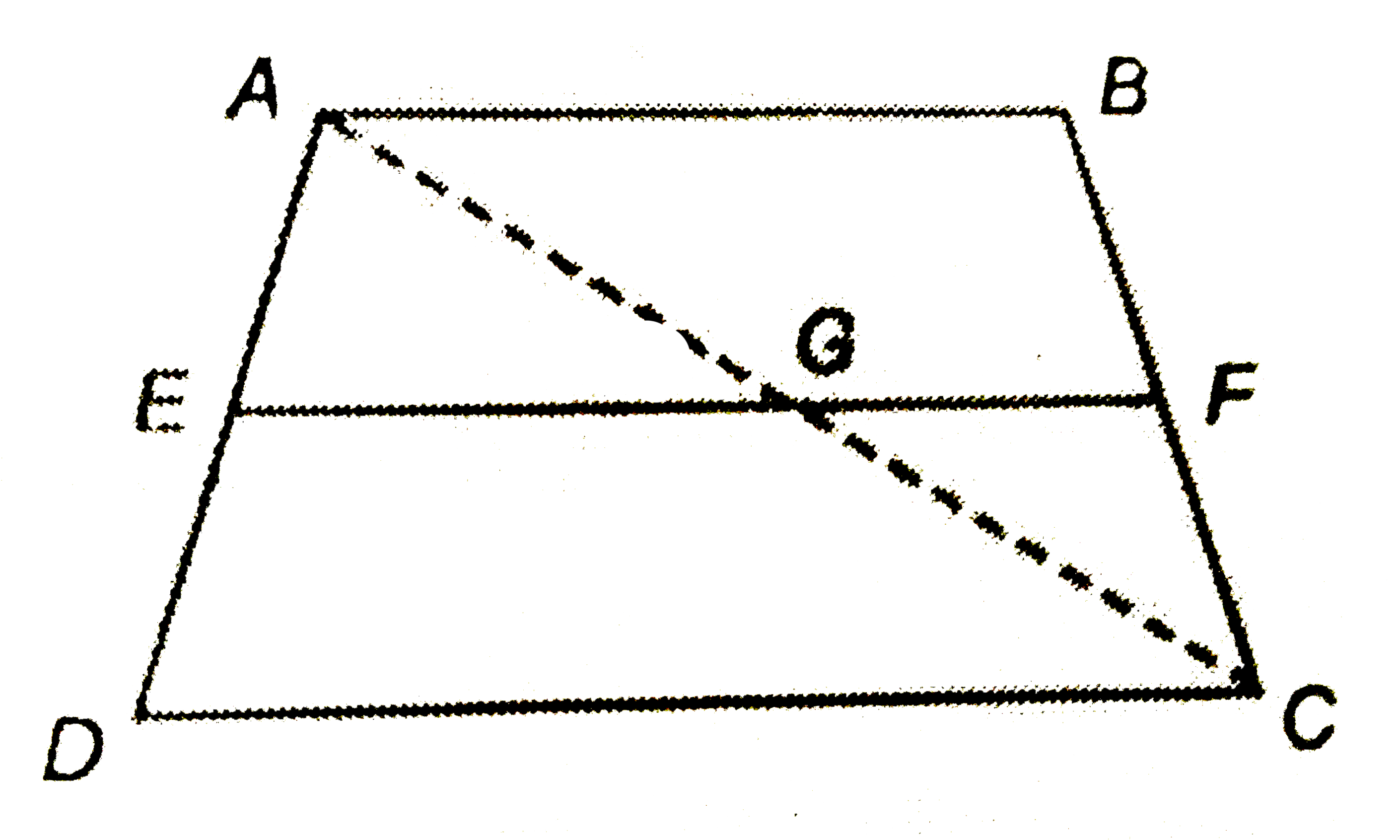
View SolutionProve that the figure formed by joining the mid-points of the pairs of consecutive sides of a quadrilateral is a parallelogram.
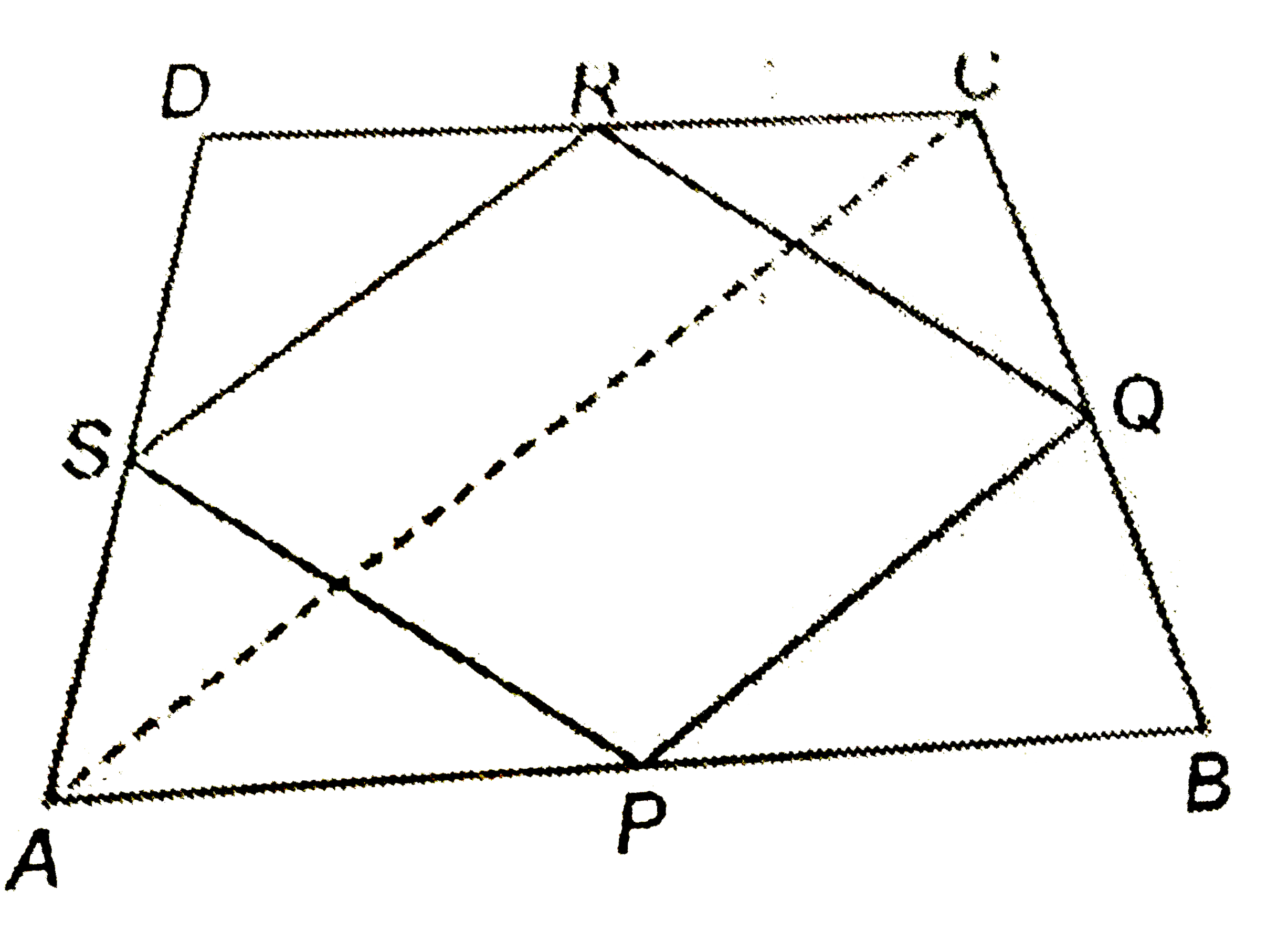
View SolutionThe diagonals of a quadrilateral ABCD are mutually perpendicular . Prove that the quadrilateral formed by joining the mid-points of its consecutive sides is a reactangle.
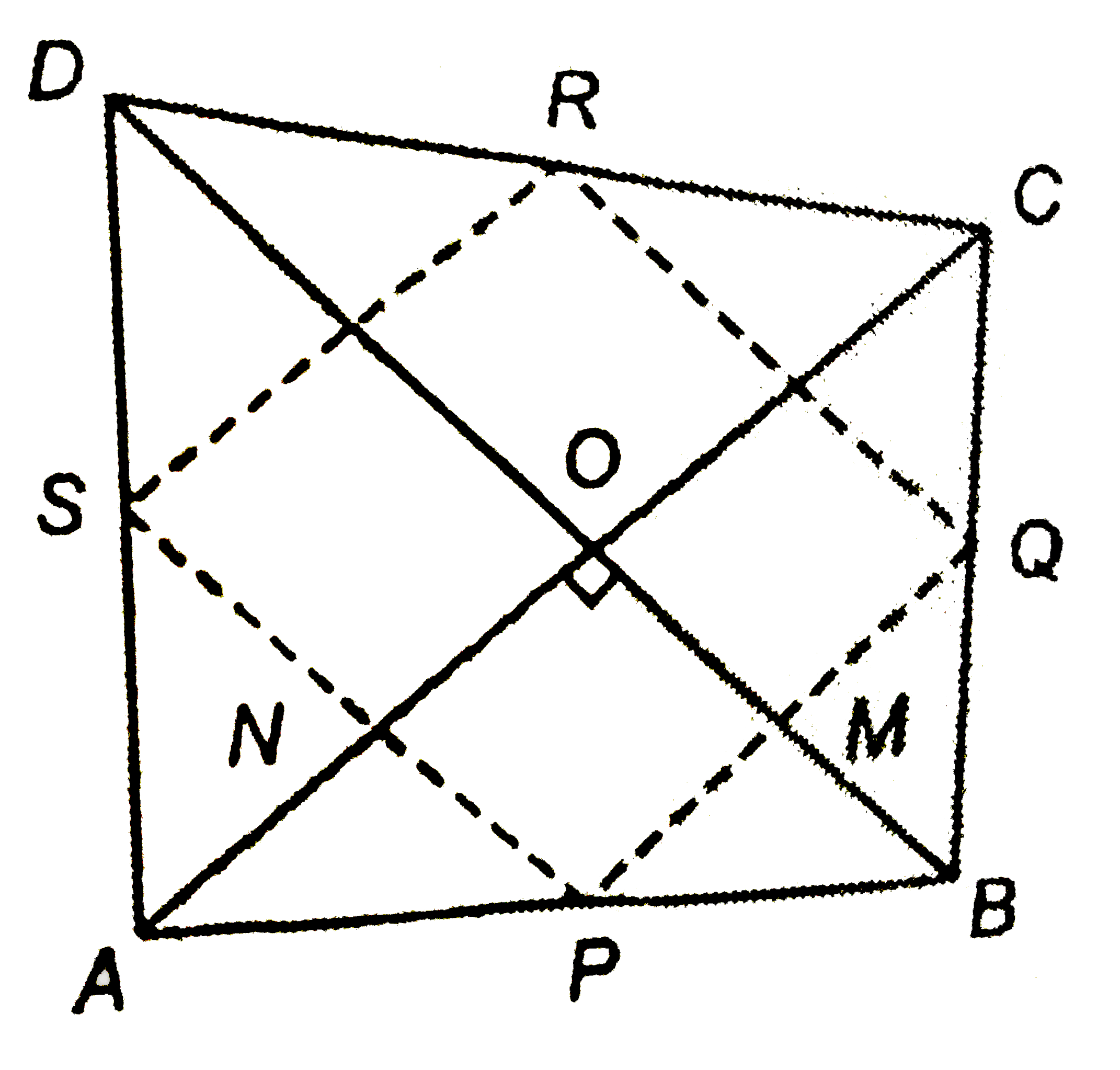
View SolutionShow that the quadrilateral formed by joining the mid-points of the consecutive sides of a rectangle is a rhombus.
View SolutionShow that the lines joining the mid-points of opposite sides of a quadrilateral bisect each other.
View SolutionProve that the line joining the mid-points of the diagonals of a trapezium is parallel to the parallel sides of trapezium and is half of their difference.
View SolutionIn the adjoining figure. AD and BE and BE are two medians of `DeltaANC.`if `DF"||"BE,"then prove that"CG=1/4AC.`
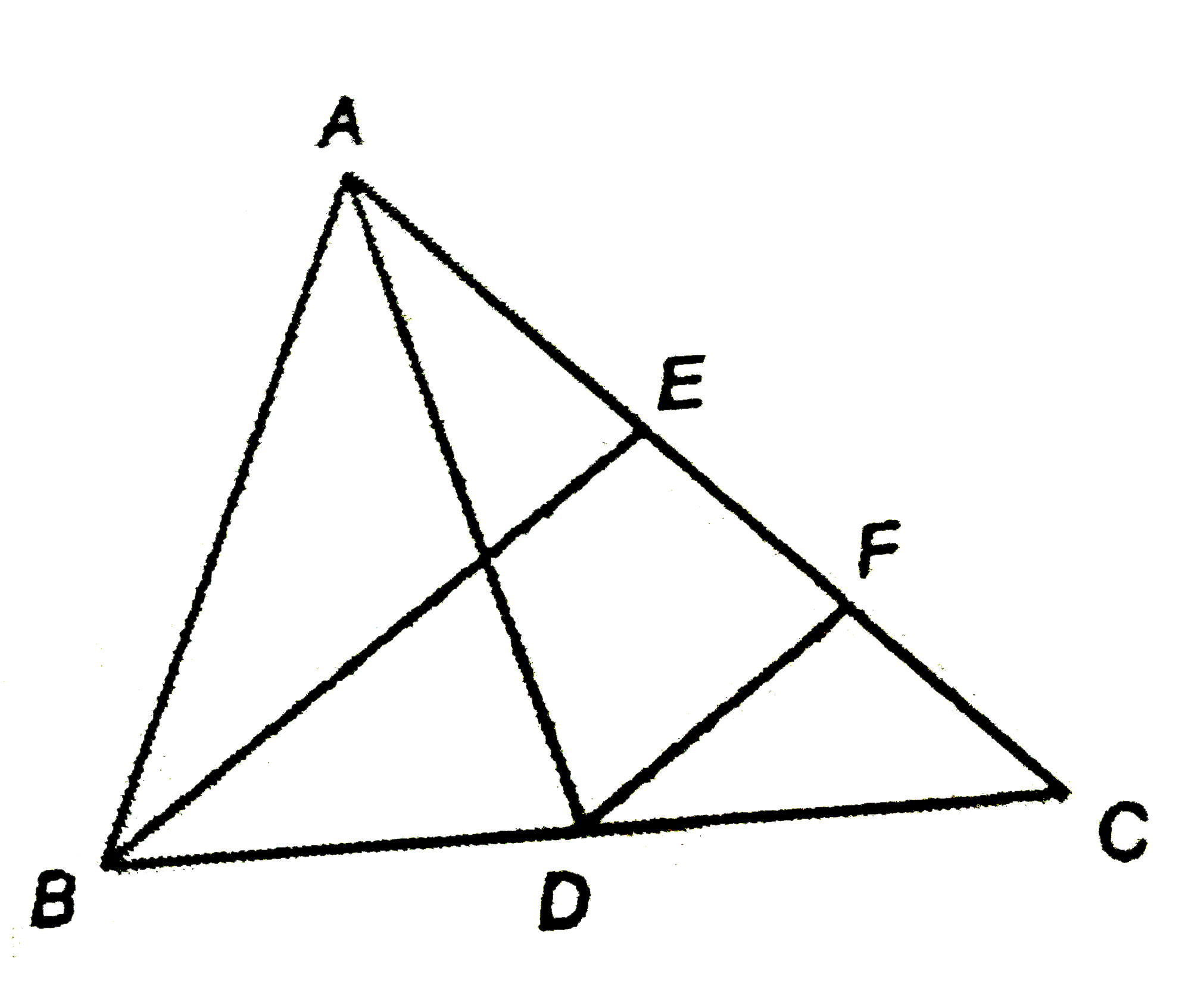
View SolutionIn the adjoining figure, PQRS is a parallelogram. A and B are the mid-points of PQ of SR respectively. If PS= BR, then prove that quadrilateral ADBC is a reactangle.
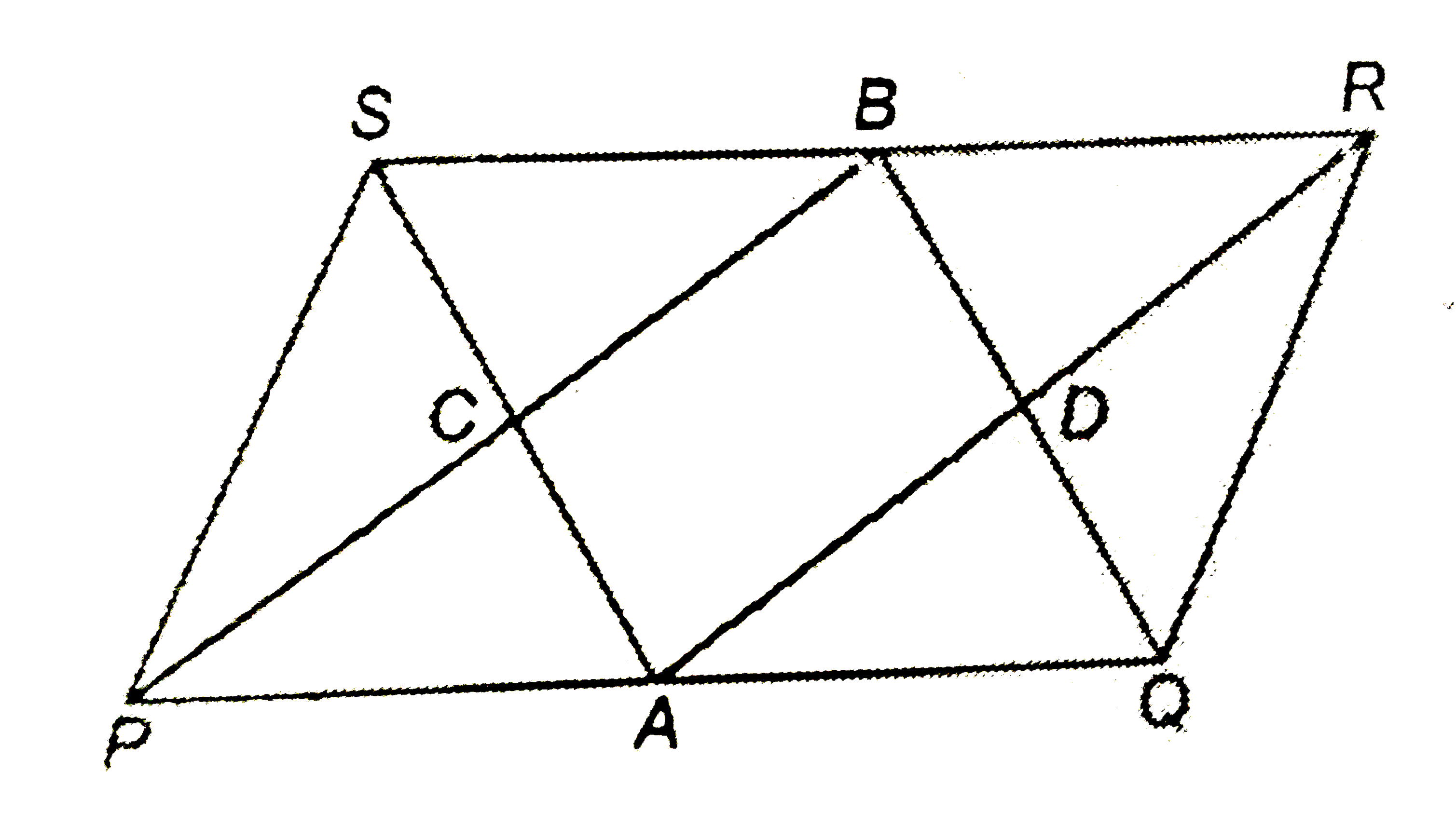
View Solution
Solved Examples questions and complete solutions for chapter QUADRILATERALS of NAGEEN MATHS (HINGLISH) of Class 9